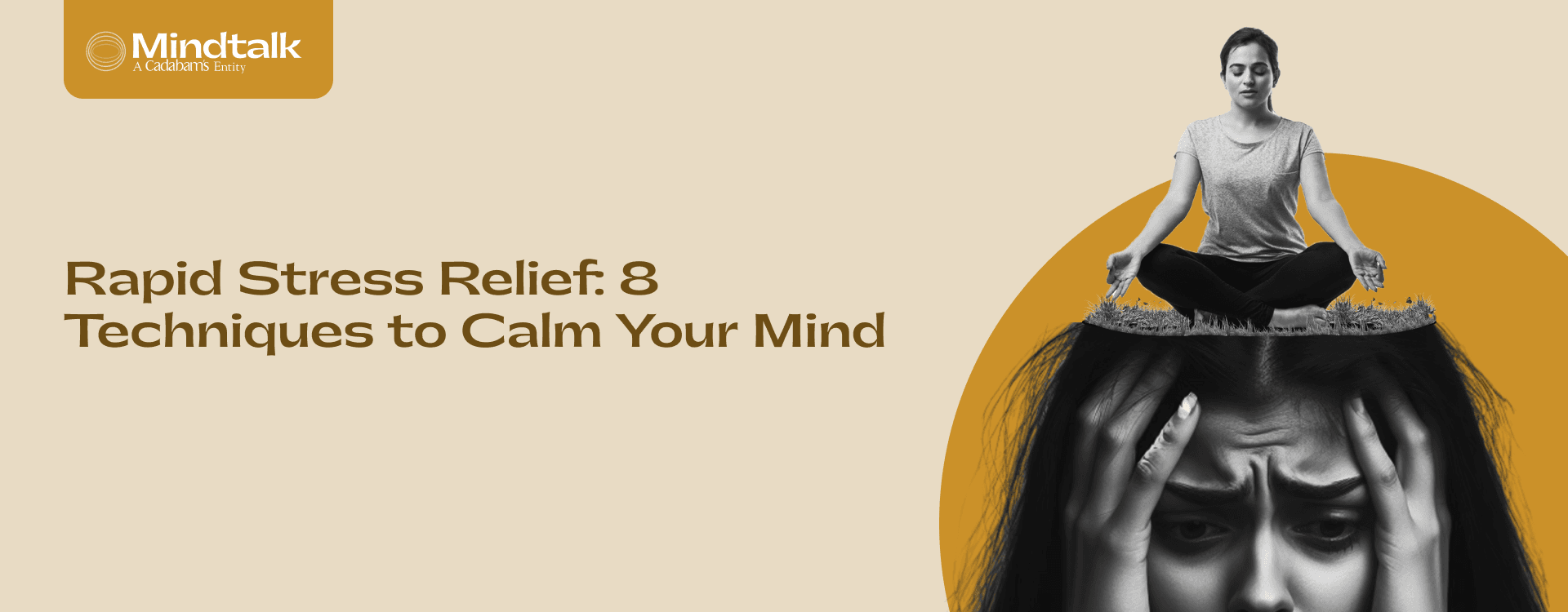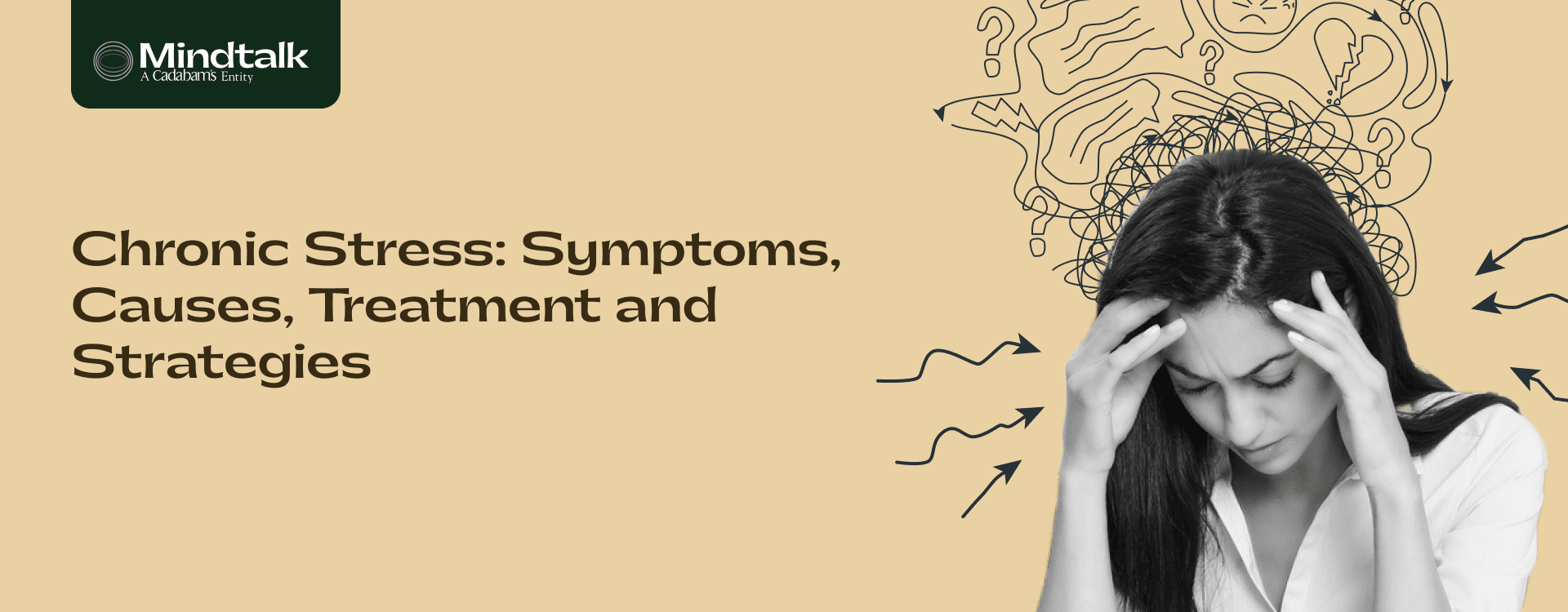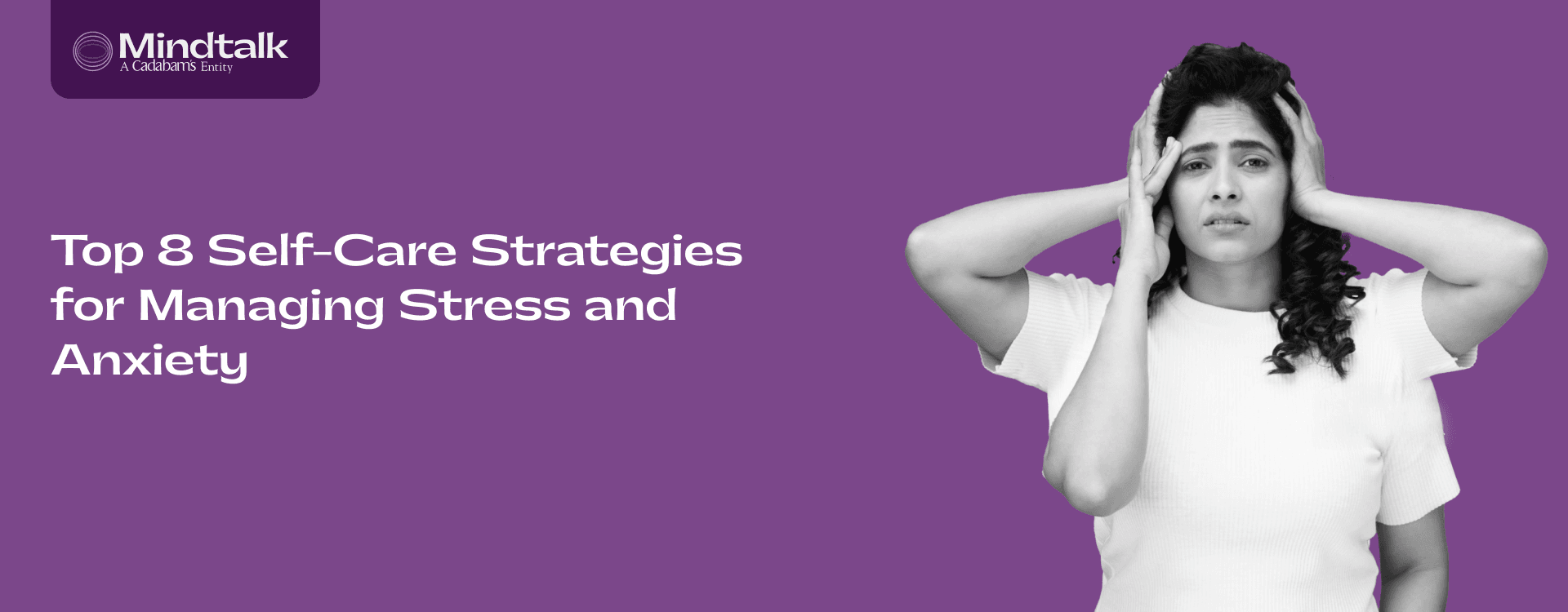Food for Thought: How Diet Impacts Your Stress Levels and Mental Health
The connection between mind and gut is more important than ever when it comes to understanding mental well-being. What we eat impacts mood, stress, and mental well-being. This blog explores how diet influences mental health and highlights stress-reducing superfoods that can help boost mood and ease anxiety.
The Gut-Brain Connection: Why Your Diet Affects Your Mood
Your gut does more than digest—it talks to your brain. Through the gut-brain axis, your digestive system influences how you feel, think, and respond to stress, making nutrition a powerful tool for supporting mental health.
How The Gut Microbiome Communicates With the Brain
The gut microbiome, which is made up of trillions of bacteria and other microorganisms, plays an important role in regulating mental health. These microbes produce metabolic products that enter the brain via the bloodstream and can influence mood and emotional responses.
The gut microbiome sends signals to the brain via the vagus nerve, helping to regulate stress, anxiety and other emotional states. Research has shown that a balanced microbiome, rich in beneficial bacteria, promotes mental well-being and reduces the risk of mental disorders.
The Role of Neurotransmitters Like Serotonin and Dopamine in Mental Health
Neurotransmitters such as serotonin and dopamine are essential for mood regulation, and the majority of serotonin, around 90% is produced in the gut. This shows how important a healthy digestive system is for maintaining the balance of neurotransmitters.
Diet has a direct impact on the production of these chemicals and influences how we feel emotionally. Eating foods that support gut health, such as those rich in fibre and probiotics, can help maintain an optimal balance of neurotransmitters.
Why Processed Foods May Increase Anxiety and Depression
Processed foods, which are often high in sugar, unhealthy fats and additives, can have a negative impact on mental health. Research suggests that a diet high in these foods is associated with increased inflammation, which has been linked to mood disorders such as anxiety and depression.
Stress-Reducing Superfoods: What to Eat for a Calmer Mind
Certain foods are particularly suitable for overcoming stress and increasing mental well-being. These scientifically backed, stress-reducing foods provide important nutrients that support brain function, reduce inflammation and regulate mood.
Incorporating these foods into your daily diet can be a simple and effective way to combat stress and improve overall mental health.
Omega-3-Rich Foods
Omega-3 fatty acids are important for brain health as they are anti-inflammatory and support mood regulation. These brain-boosting fats, found in foods such as salmon, walnuts and flaxseed, help reduce inflammation, which can contribute to anxiety and depression.
Omega-3 fatty acids are also crucial for the production of neurotransmitters, making them a valuable addition to any diet aimed at stress reduction.
Magnesium-Packed Foods
Magnesium is known for its calming properties and plays an important role in relaxation and stress management. Foods such as spinach, pumpkin seeds and almonds are rich in magnesium and can help regulate cortisol levels, the body's main stress hormone.
Probiotic Foods
Probiotics, found in foods such as yoghurt, kimchi and sauerkraut, support gut health and help to manage stress. These foods contain beneficial bacteria that promote a healthy gut microbiome, which in turn supports mental health.
The Hidden Stress Triggers in Your Diet
Some everyday foods have been shown to unknowingly contribute to higher stress levels. Although they may seem harmless or even stimulating, these foods can disrupt mood regulation and increase anxiety if consumed in excess or in an unbalanced way.
Caffeine And Anxiety
Caffeine, especially when consumed in large quantities, has been linked to increased levels of cortisol, the body’s main stress hormone. It can also over-stimulate the nervous system, which can lead to nervousness, restlessness and even panic attacks.
For people who are already prone to anxiety, symptoms can be exacerbated by caffeinated drinks such as coffee and energy drinks.
Sugar Crashes And Mood Swings
Refined sugar leads to a rapid rise in blood sugar levels, resulting in a quick burst of energy followed by a sharp drop. This sudden drop affects emotional stability and often leads to mood swings and irritability.
Regular consumption of sugary snacks and drinks can disrupt the body’s natural energy regulation and affect both concentration and emotional balance.
Ultra-Processed Foods
Ultra-processed foods have been linked to chronic inflammation, which has a negative impact on mental health. These foods, which are often high in additives, preservatives and unhealthy fats, disrupt gut flora and affect the hypothalamic-pituitary-adrenal (HPA) axis, an important stress-regulating system.
Hydration and Mental Clarity: The Overlooked Connection
Water is not only important for physical health, but it also plays a crucial role in regulating emotions and cognitive clarity. Inadequate hydration has been linked to low mood and impaired brain function.
Dehydration And Its Effects on Cognitive Function and Stress
Even mild dehydration has been shown to impair concentration, increase irritability and reduce short-term memory. This condition can increase stress levels without the person being aware of the cause.
How Herbal Teas Can Promote Relaxation and Reduce Anxiety
Herbal teas such as camomile, lavender and ashwagandha have a calming effect. These herbs are traditionally used to calm the nerves and promote better sleep, helping to reduce stress naturally.
Electrolytes And Brain Function
Electrolytes such as sodium, potassium and magnesium are essential for healthy signalling in the brain. When they are in a balanced ratio, they support concentration, mood stability and the nervous system’s stress response.
Meal Timing and Blood Sugar Balance: How to Avoid Stress Spikes
It has been shown that the consistency of mood depends not only on what is eaten, but also on when meals are eaten. Skipping meals or choosing unbalanced options can lead to mood swings, fatigue and increased stress.
The Impact Of Skipping Meals on Anxiety And Irritability
When meals are skipped, blood sugar levels drop, triggering feelings of irritability, fatigue and even panic. Long breaks between meals put the body in a state of stress, which increases cortisol production and exacerbates anxiety symptoms.
Balanced Meals Vs. High-Carb Crashes
Balanced meals that contain protein, fibre and healthy fats have been shown to regulate blood sugar levels and maintain a stable mood. In contrast, meals high in refined carbohydrates can lead to temporary energy spikes followed by a rapid crash, often resulting in low energy and mood swings.
Best Meal Schedules for Stable Mood and Productivity
It is recommended to eat a meal every 3 to 4 hours to keep blood sugar levels stable and avoid mental fatigue. A regular meal schedule ensures consistent energy throughout the day and promotes both emotional well-being and productivity.
The Role of Comfort Food: Why We Crave Junk When Stressed
Comfort eating is often triggered by biological responses to stress rather than a lack of willpower. Understanding this process can help reduce guilt and promote healthier coping strategies.
Emotional Eating
When stress levels rise, cortisol triggers the brain to seek rewards, leading to cravings for sugar, fat and salt. These foods trigger a release of dopamine, which provides short-term relief but often exacerbates stress in the long term.
How To Find Healthier Alternatives Without Deprivation
Healthier comfort options such as dark chocolate, nuts or smoothies can satisfy cravings without increasing stress. These alternatives provide nutrients that support mood regulation.
Mindful Eating Techniques to Reduce Stress Eating
Mindful eating involves slowing down, chewing thoroughly and checking your emotional state before meals. These practices help to reduce emotional eating and build a healthier relationship with food.
Easy, Stress-Relieving Recipes for a Better Mood
Simple, nutritious and comforting meals have been shown to promote both physical health and emotional balance. Focusing on whole foods and simple preparation can reduce stress both in the kitchen and in the mind.
Quick And Nutritious Meals to Support Brain Health
Meals such as grain bowls, lentil or vegetable curries and stir-fries with a mix of vegetables and whole grains are associated with better mental clarity. These combinations provide fibre, complex carbohydrates and essential nutrients that stabilise mood and nourish the brain.
Smoothies, Snacks, And Meals Packed with Stress-Fighting Nutrients
Simple snacks such as almond butter on wholemeal toast, a homemade trail mix with nuts and seeds, or a berry and protein smoothie can provide quick mood-boosting nutrients. These options support blood sugar stability and provide antioxidants that help reduce stress.
How To Prep Food That Keeps Energy Levels Stable All Day
Meal preparation is recommended as an important habit to avoid skipped meals and impulsive sugar consumption. Preparing ingredients or whole meals in advance ensures a balanced selection is available throughout the day, reducing decision fatigue and emotional eating.
When to Seek Professional Advice on Nutrition and Mental Health
Although dietary changes can support mental wellbeing, professional help should be sought if symptoms do not improve with diet alone. Recognising these signs early can prevent long-term mental health problems.
Signs Your Diet May Be Affecting Your Mental Health
Low energy, frequent mood swings, brain fog and digestive discomfort may indicate that your current diet is not meeting your emotional or physical needs. These signals should not be ignored.
When To Consult a Nutritionist or Therapist for Dietary Changes
The support of a registered dietitian or mental health professional can help develop a personalised plan. Such counselling is especially valuable if mood problems persist or worsen.
How Small Food Swaps Can Make a Big Difference in Mental Well-Being
Simple measures such as replacing sugary snacks with fruit and nuts or processed meals with wholefood alternatives have been shown to improve mood, gut health and emotional regulation in the long term.
Small Changes, Big Impact on Mental Well-being by Mindtalk
At Cadabam’s Mindtalk, we combine psychological counselling with nutritional science to provide comprehensive support. Here, we encourage individuals to adopt daily eating habits that can boost mood and reduce anxiety.
If you or someone you love is struggling, professional help is available for those seeking practical, compassionate guidance based on the science of the link between nutrition and mood.
Meet Our Stress Management Experts




